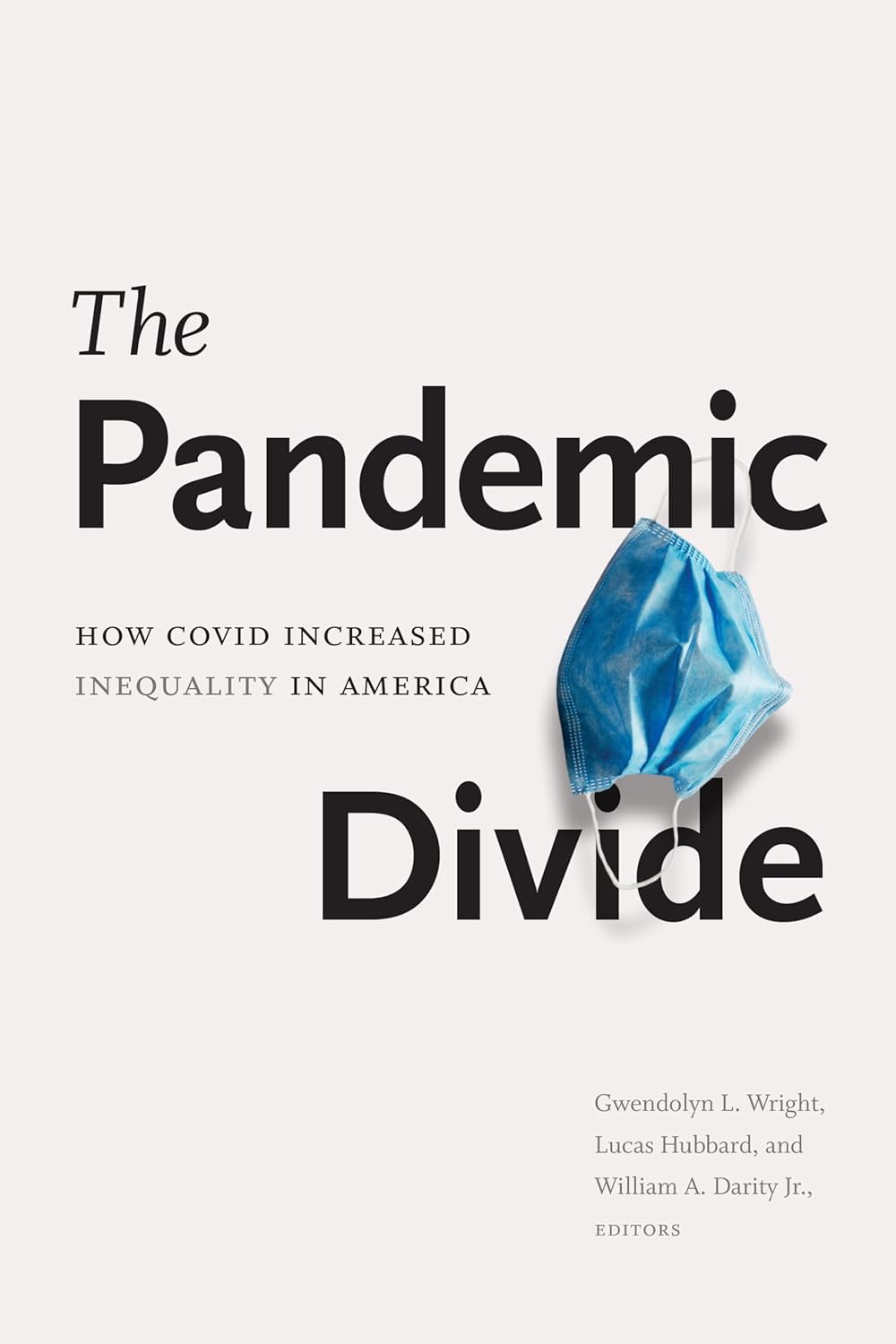Overview
As COVID-19 made inroads in the United States in spring 2020, a common refrain rose above the din: “We’re all in this together.” However, the full picture was far more complicated-and far less equitable. Black and Latinx populations suffered illnesses, outbreaks, and deaths at much higher rates than the general populace. Those working in low-paid jobs and those living in confined housing or communities already disproportionately beset by health problems were particularly vulnerable. The contributors to The Pandemic Divide explain how these and other racial disparities came to the forefront in 2020. They explore COVID-19’s impact on multiple arenas of daily life-including wealth, health, housing, employment, and education-while highlighting what steps could have been taken to mitigate the full force of the pandemic. Most crucially, the contributors offer concrete public policy solutions that would allow the nation to respond effectively to future crises and improve the long-term well-being of all Americans.
Contributors: Fenaba Addo, Steve Amendum, Leslie Babinski, Sandra Barnes, Mary T. Bassett, Keisha Bentley-Edwards, Kisha Daniels, William A. Darity Jr., Melania DiPietro, Jane Dokko, Fiona Greig, Adam Hollowell, Lucas Hubbard, Damon Jones, Steve Knotek, Arvind Krishnamurthy, Henry Clay McKoy Jr., N. Joyce Payne, Erica Phillips, Eugene Richardson, Paul Robbins, Jung Sakong, Marta Sánchez, Melissa Scott, Kristen Stephens, Joe Trotter, Chris Wheat, Gwendolyn L. Wright
Editorial Reviews
“The Pandemic Divide is essential reading for anyone who wants to understand why COVID-19 has hit Black communities so incredibly hard and what must change if we believe in an equitable society. As we emerge from this pandemic we know that more pandemics will come. We also know that, for so many people, every day is a health crisis. If we want to see a different outcome, we must dismantle systems of structural racism that are the barriers to opportunity. These authors show us what must be done.”
Richard Besser, MD, President and CEO, Robert Wood Johnson Foundation
“When we want to look back years from now to understand how in the United States, a very prosperous country, the impact of COVID-19, from mortality rates to job losses, resulted in the worst outcomes among Black and Brown communities, this book will be a comprehensive, one-stop source for enlightenment.”
Michelle Holder, President, Washington Center for Equitable Growth
“Required, essential reading for Americans trying to reconcile their pandemic experiences.” (starred review)
Tina Panik, Library Journal
“The Pandemic Divide should appeal to anyone with an interest in social and cultural politics, and moreover policy. In a world that is continually racialised and then derided for being so, this book is an urgent reminder of how deep rooted systems operate in sinister ways to continually exploit, undermine, and undervalue whole swathes of the population.”
Georgia Bisbas, Lancet Infections Diseases
“Disturbing but proactive….”
Andrew Robinson, Nature
“Wright, Hubbard, and Darity offer compelling sociological, economic, and epidemiological data to show that that structural racism has undeniable consequences on the health and mortality of racial and ethnic minorities. The Pandemic Divide is a useful text for students, educators, and researchers to understand why the COVID-19 pandemic impacted certain populations more than others.”
Gwenetta Curry, Ethnic and Racial Studies
“This anthology of 11 short essays, bracketed by an excellent introduction and a punchy conclusion, is based on a wealth of scholarship and statistics that use the COVID-19 pandemic as a lens to expose the enormous racial disparities in American society—disparities that were simply magnified by the challenges and tragedies of the crisis. . . . For social historians of medicine, the collection provides numerous secondary sources to inform discussion of the many facets of healthcare injustice.”
Jacalyn M. Duffin, Social History of Medicine
“The Pandemic Divide offers a comprehensive exploration of the societal and economic impacts of COVID‐19 in the United States, particularly highlighting the exacerbation of inequalities. Covering a broad spectrum of issues, including healthcare, employment, education and housing, the book provides a detailed overview of the pandemic’s wide‐ranging and intricate effects. . . [T]he insights it offers into the complex dynamics of inequality amid a global health crisis are profoundly valuable, affirming the book’s significance within academic and policy‐making circles.”
Farid Mohammadi, Sociology of Health & Illness
Editors

Gwendolyn L. Wright is Director of Strategic Initiatives and Collaborations at the Samuel DuBois Cook Center on Social Equity at Duke University.

William A. Darity Jr. is Samuel DuBois Cook Distinguished Professor of Public Policy and Director of the Samuel DuBois Cook Center on Social Equity at Duke University.

Lucas Hubbard is Associate in Research at the Samuel DuBois Cook Center on Social Equity at Duke University.

